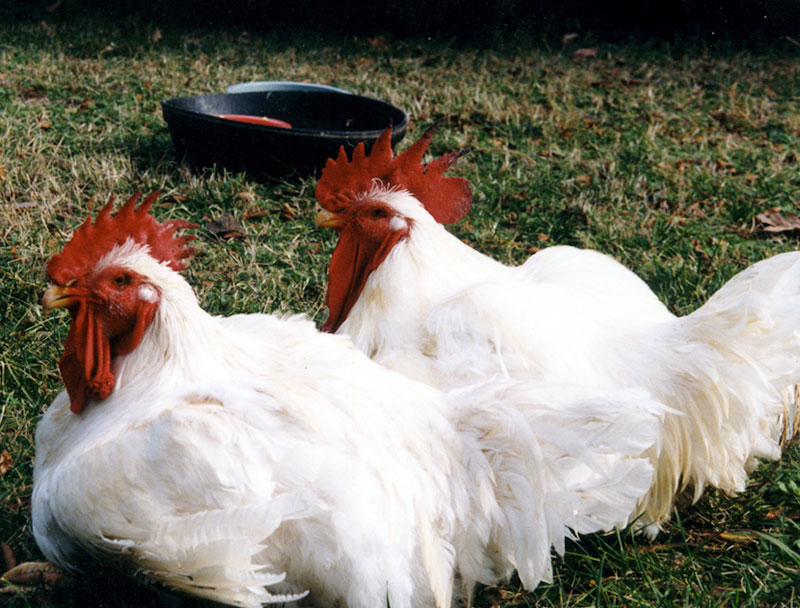“A Killing Floor Chronicle: A down-and-out former poultry worker's online memoirs of his gruesome job have electrified animal-rights activists worldwide”
by Stephanie Simon, Los Angeles Times, Dec. 8, 2003

Photo By: Lesley P. Nobles
For 5 years Virgil Butler killed 80,000 birds per shift on a 9-man team in a Tyson chicken slaughter plant in Arkansas until Tyson fired him in 2002.
Two months later, Butler described slaughterhouse abuses —"just a part of a regular night's work" — at a news conference sponsored by PETA. Only one reporter came, and no one wrote it up. But over the next few months, animal rights groups featured Butler on their websites and in their newsletters. (See the Spring and Summer-Fall 2003 issues of PoultryPress.) "Each time they did, hundreds of e-mails poured in, thanking him for, as one writer put it, 'being a voice for the animals.'
"Amazed, emboldened, Butler began to think of himself as more than an assembly-line killer. He gave up his fried ham and pork rinds in favor of a vegan diet."
And he started a website recounting his experience at Tyson: the birds' horrific slaughter, broken bones, electric shocks, bruises, and being boiled alive in scald tanks; co-workers ripping off the heads of live chickens, stomping them to death and blowing them up with dry-ice bombs for fun. Butler knows the chickens' panic: "sometimes, you catch one looking up at you, eye to eye, and you know it's terrified."
Butler took his first job in the poultry industry at 14 when he joined a crew that went "from farm to farm, grabbing chickens and stuffing them into wooden crates for transport to the slaughterhouses." Later, he took a job killing chickens at Tyson where the live birds are considered nothing more than "pre-processed product."
"But the longer he worked the kill floor, Butler said, the more it began to disturb him." He took drugs, started carrying a knife. "It felt like you were losing your humanity," he recalls. "There is blood everywhere. It's just you and the dying chickens. You are ashamed to tell others what you do at night while they are asleep in their beds."
Though Tyson disputes Butler's claims, after logging on to his website the company "announced plans to inspect its slaughterhouses to ensure humane treatment of the 42 million chickens it slaughters each year." [UPC Editor's note: Even if sincerely attempted, these "plans" could not be carried out under the current system of hanging the birds upside down in shackles and submerging them in a torturous electrified water trough designed to paralyze their muscles to release their feathers and keep them from flapping rather than to relieve their suffering.]
Plugged to a computer in a battered camper in the mountains of Arkansas, Virgil Butler and his partner, Laura Alexander, are taking the plight of chickens to the world. As Butler explains it: "One person can make a difference if you just don't shut up. If you keep talking long enough, people will hear you."
Butler and Alexander run a chat room at:
http://groups.yahoo.com/group/activistsagainstfactoryfarming
Butler's website: www.cyberactivist.blogspot.com.
LA Times article: www.upc-online.org/slaughter/120803.htm

- Plan to attend UPC's Fifth Annual Forum, Aug. 21-22, 2004,
in Virginia, and hear Virgil Butler speak about his experience
at Tyson. (More about our Forum in future issues of PoultryPress.)
- Order our new booklet Poultry Slaughter: The Need
for Legislation. $2 per copy incl.
shipping. $1 per copy if you order 3 or more. Also available on line at www.upc-online.org/slaughter
- Contact:
Tyson Foods
PO Box 2020
Springdale, AR 72765
Ph: 479-290-4000. Fax: 479-290-3923
Customer Hotline: 800-643-3410
Email: John.Tyson@Tyson.com